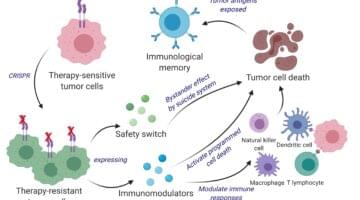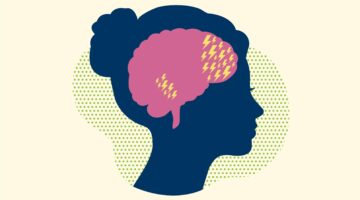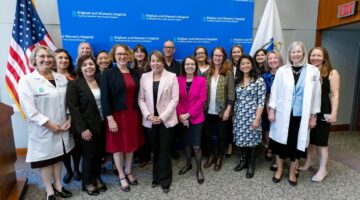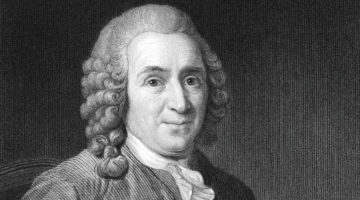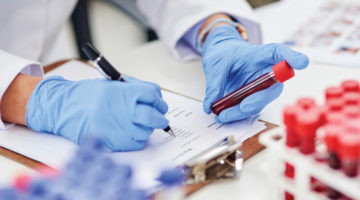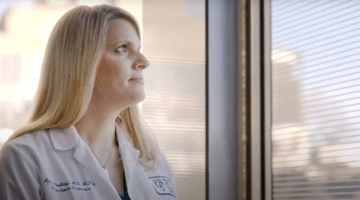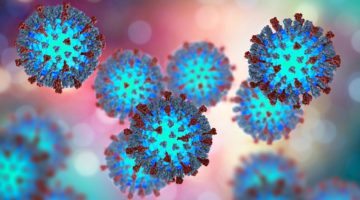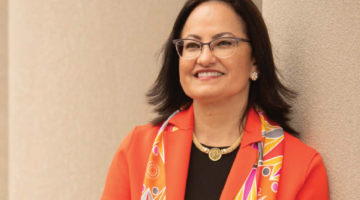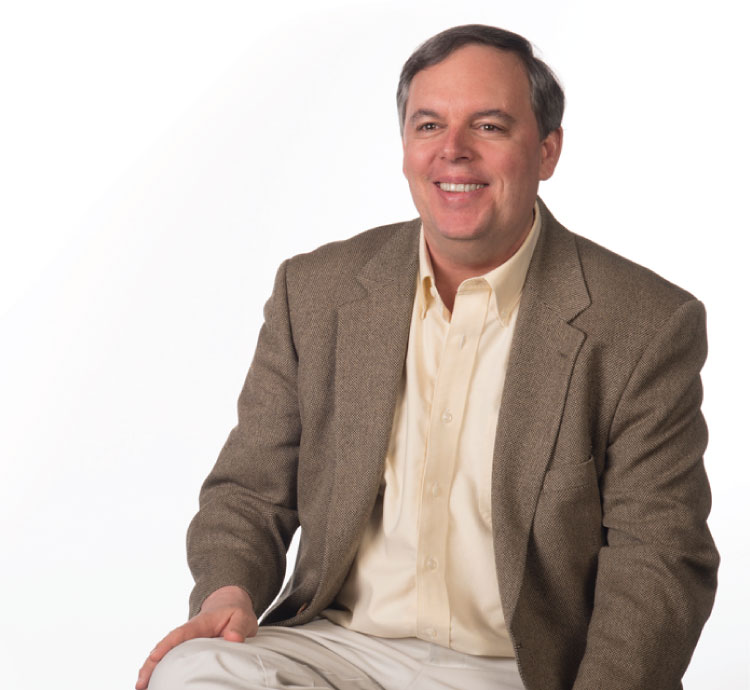
Gregor Mendel Professor of Genetics and of Medicine
Harvard Medical School and Brigham and Women’s Hospital
(Photo by Stu Rosner)
You’ve been awarded some of the most prestigious prizes in science. How did your interest in science begin?
We had a reading achievement program when I was a kid where I learned about dinosaurs, the solar system, atoms, molecules. When I learned everything is made up of something smaller, that all matter has a pattern, I thought that was the coolest thing ever. In high school, I joined the chemistry team and won first place in a competition among several schools. I had never won anything before, so I thought maybe I could do this.
When did you shift from chemistry to biology and genetics?
In my senior year of college, I had taken all my required chemistry classes except one elective, so I took biochemistry. When we got into DNA and they discussed recombinant DNA, I thought, “Wow! You can take pieces of DNA apart and put them back together and turn things on and off? I want to do THAT!” That day, I took my first step from being a chemist to becoming a geneticist. It’s fun to trick a cell into giving up its secrets. Once you do that, you can go into the pathways and understand how they work together.
In addition to being a geneticist, you have a reputation as an inventor.
I enjoy the engineering aspects of developing technologies and tools. I tend to look at a problem and say, “Hey, we could solve that a lot faster if we had these things.” It might take longer to create a tool first, but if you can figure it out, you’ve shortened the time for everyone else down the road. Building tools and technologies oils the wheels of science for everybody.
How do you see your lab contributing to human health in the next 10 years?
I think autoimmunity is a solvable problem. Autoimmunity is like cancer because your body’s cells turn against you. Unlike cancer, which constantly evolves, autoimmunity is the same mechanism choosing different targets. If we can undo one mechanism, we can probably undo a lot of them. It’s an important human health problem. A lot of people are suffering.
We’re also making good progress in cancer. One of the big things we’ve done in the past five years is show how aneuploidy [an abnormal number of chromosomes in a cell] helps cancers evolve. This could be a key to making immunotherapies more effective.
Building tools and technologies oils the wheels of science for everybody.
What worries you about the state of science?
There’s a philosophical tension between directing science and letting it evolve. I worry about the simplistic thinking of creating big groups of people to work on things like cancer. I worry about choking off individual creativity. If all people are getting trained to do is to plug into some kind of forward progress machine without deep thought, you’re potentially damaging science in the longer term.
Do you have a mantra you say to your students or lab staff?
Something one of my mentors used to say: “Fast is slow and slow is fast.” If you’re in a big rush to do something, you’re probably not going to do it in the right way, and it’s going to end up taking a lot longer. But if you take the time to do the experiment right the first time, you’ll achieve your goal faster.
Is there a certain scientific ignorance that bothers you?
Understanding statistics, odds, probabilities, the likelihood of something happening. You hear stories about people getting their genomes sequenced and worrying they have a 3 percent greater chance of developing some disease. But a 3 percent greater chance isn’t remotely similar to, or as dramatic as, a three-fold greater chance. People get tricked by stuff like that.
What do you enjoy doing when you’re not working?
I love music and going to concerts. I’m a child of the ’60s and ’70s, so I’m into rock ‘n’ roll. I have a Jerry Garcia doll up on my bookshelf, right next to a Charles Darwin doll.


